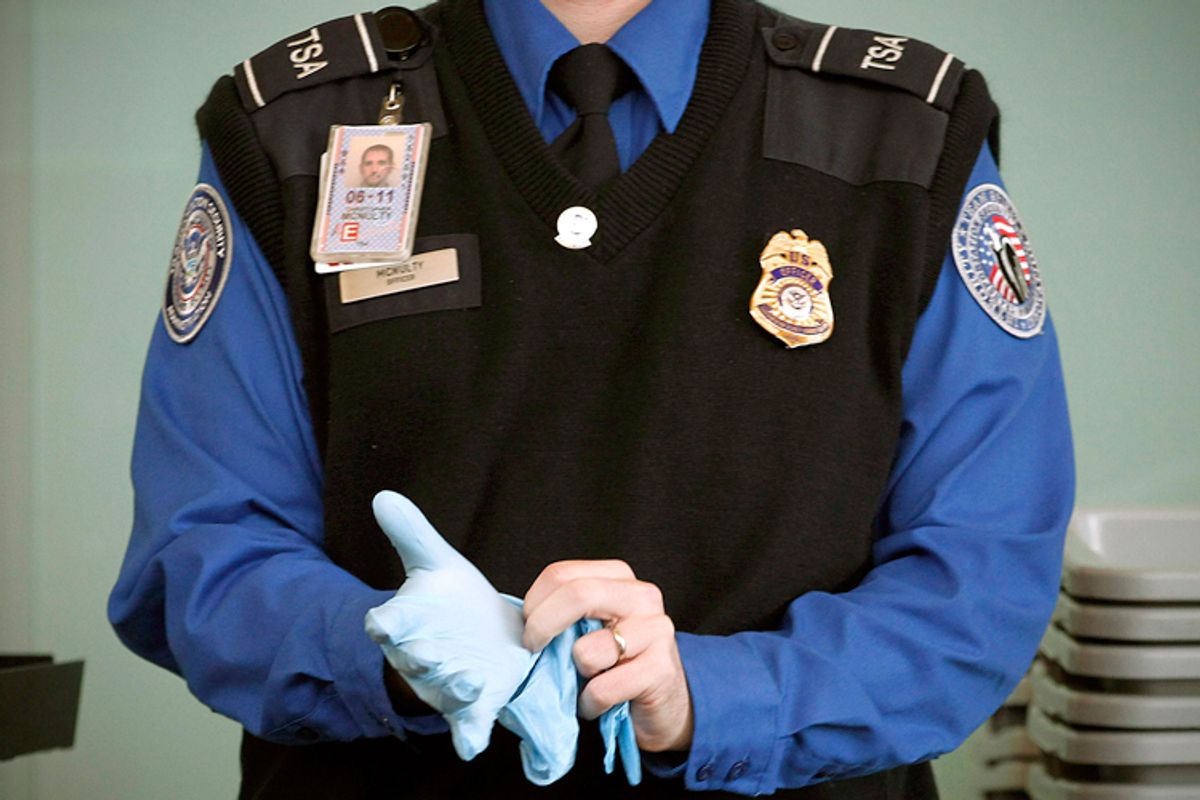Since Edward Snowden leaked information about the NSA's surveillance program to the press, the balance between security and civil liberties has been a constant source of debate. But though many lawmakers and pundits have taken a hard line on leakers like Snowden and national security issues in general, two recent polls indicate that this is somewhat out-of-step with American voters.
Quinnipiac University released a poll on Wednesday that found, first, that a plurality of voters - 45 percent - say that the government's counterrorism policies "go too far restricting civil liberties." Only 40 percent say the policies don't go far enough. This marks a significant shift in public sentiment about national security issues in just the last few years. In 2010, the breakdown was 63 percent who said the government's policies don't go far enough, compared with only 25 percent who argued they went too far.
A CBS News poll from June had a more mixed result:
Asked if the government has gone too far in infringing on people's privacy in its efforts to fight terrorism, 46 percent think the balance is about right, but 36 percent say the government has gone too far. Just 13 percent think the government hasn't gone far enough. Republicans are more likely (42 percent) than Democrats (26 percent) to say the government has gone too far.
The same Q poll also asked whether Snowden is a "whistleblower" or a "traitor" - a topic that has been debated ad nauseum by lawmakers and pundits since the story first broke. Democrats and Republicans alike have gone with "traitor" - including Sen. Dianne Feinstein, D-Calif., and House Speaker John Boehner, R-Ohio, who have respectively labeled Snowden's leak an "act of treason" and just come out and called him a "traitor." (Not to mention Sen. Susan Collins, who called Snowden “a high-school drop-out who had little maturity [and] had not successfully completed anything he had undertaken.")
Politico breaks down some of the similarly-themed comments from the punditry:
Washington’s opinion elite has been even more savage in its assessment of Snowden. The Washington Post’s Matt Miller assailed him as a “celebrity waiting in Hong Kong for Diane Sawyer’s call,” whose complacence about national security allowed him to “indulge … his precious conscience.” POLITICO’s Roger Simon lampooned Snowden as “the slacker who came in from the cold,” a self-styled spy with “all the qualifications to come a grocery bagger.”
But the Q poll finds that 55 percent of Americans would describe Snowden as a "whistleblower," compared to just 34 percent who say he's a "traitor." This breaks down similarly along party lines, too, with 49 percent of Democrats, 55 percent of Republicans, and 58 percent of independents describing Snowden as a "whistleblower."
Of course, lawmakers who have decried Snowden have also argued that his actions might have put national security at risk. Snowden is "a fugitive who has endangered the national security of the United States," said Sen. Bob Menendez, D-N.J., in June.
American voters, on the other hand, don't see it that way. The same CBS News poll from last month found that 60 percent of Americans say the leaks will either have no impact or will strengthen national security, while 30 percent say it will do damage to those efforts.



Shares